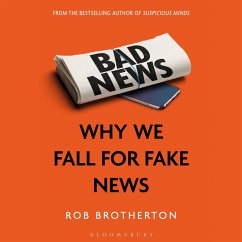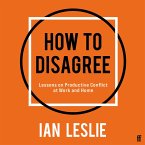Bloomsbury presents Bad News by Rob Brotherton, read by Lance C Fuller. From the bestselling author of Suspicious Minds There was a time when the news came once a day, in the morning newspaper. A time when the only way to see what was happening around the world was to catch the latest newsreel at the movies. Times have changed. Now we're inundated. The news is no longer confined to a radio in the living room, or to a nightly half-hour timeslot on the television. Pundits pontificate on news networks 24 hours a day. We carry the news with us, getting instant alerts about events around the globe. Yet despite this unprecedented abundance of information, it seems increasingly difficult to know what's true and what's not. In Bad News, Rob Brotherton delves into the psychology of news, reviewing how the latest research can help navigate this supposedly post-truth world. Which buzzwords describe psychological reality, and which are empty sound bites? How much of this news is unprecedented, and how much is business as usual? Are we doomed to fall for fake news, or is fake news ... fake news? There has been considerable psychological research into the fundamental questions underlying this phenomenon. How do we form our beliefs, and why do we end up believing things that are wrong? How much information can we possibly process, and what is the internet doing to our attention spans? Ultimately this book answers one of the greatest questions of the age: how can we all be smarter consumers of news?
Bitte wählen Sie Ihr Anliegen aus.
Rechnungen
Retourenschein anfordern
Bestellstatus
Storno








